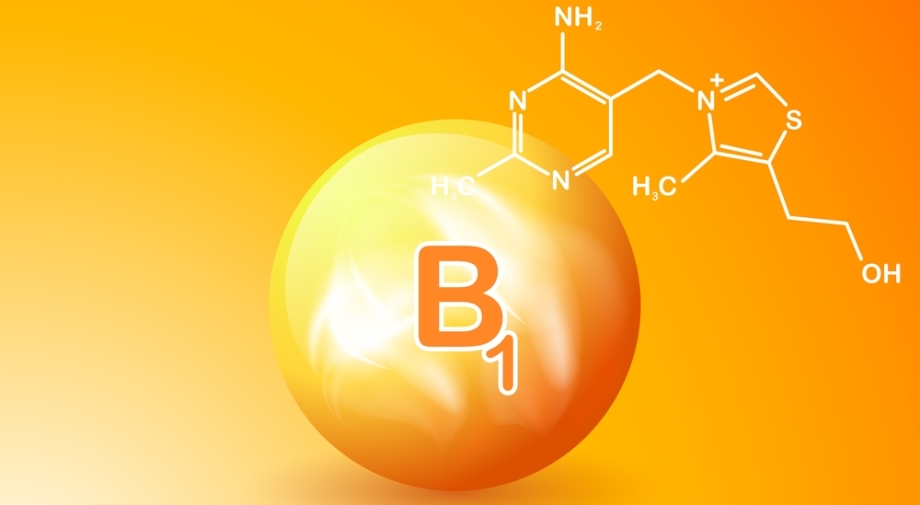
Thiamine, also called Vitamin B1, is an essential nutrient that plays a crucial role in maintaining health. Since it is a water-soluble vitamin, it is vital to produce energy, support the health of the nervous system, and promote general metabolic functioning. Despite its importance, many people struggle to obtain enough Thiamine from their diets, and supplementation is a viable option. This guide will assist you in navigating the most important aspects to consider when deciding on the best thiamine supplement for your requirements.
Understanding Thiamine and Its Role in the Body
Thiamine is crucial for converting the energy of carbohydrates. It’s a key cofactor in various enzyme reactions that help support the nervous system’s functioning and the health of your cardiovascular system. A lack of Thiamine could cause irritation, fatigue or muscle weakness. It could lead to ailments like beriberi or Wernicke Korsakoff syndrome if it is severe.
Although many foods we eat, such as whole grains such as nuts, whole grains, and lean meats, are excellent sources of Thiamine, some factors, such as drinking alcohol, a poor diet or chronic illnesses, may make it more likely that you will suffer from a deficiency. In these cases, taking the best thiamine supplement into your diet can assure your body of the help it requires.
Types of Thiamine Supplements
All thiamine supplements are not created to be the same. Understanding the available different types can help you pick the most appropriate one for your goals for health:
- Thiamine HCl:
- This form of water is widely employed in supplements.
- Practical and affordable in general supplements.
- Benfotiamine:
- A fat-soluble thiamine derivative, providing greater bioavailability.
- A widespread condition for the health of nerves and diseases such as diabetic neuropathy.
- Thiamine Mononitrate:
- Like Thiamine HCl, it is a stable version often seen in fortified food items.
- Allithiamine:
- A fat-soluble derivative of Thiamine that comes from garlic.
- It is ideal for people with problems with absorption or medical ailments.
Selecting the best thiamine supplement is often based on your specific health issues. For instance, Benfotiamine could be a better choice for nerve issues, and Thiamine HCl is ideal for general energy-boosting.
Key Factors to Consider When Choosing a Thiamine Supplement
When deciding on the best thiamine supplement, be sure to keep these essential elements in your head:
- Bioavailability:
- Your body’s ability to absorb and use the supplement is crucial. Fat-soluble supplements, such as Benfotiamine, are renowned for their high absorption rates.
- Dosage:
- Be aware of your specific needs and the dosage recommendations that your physician has provided. Supplements with high doses may be required to treat deficiencies, whereas smaller doses are sufficient for general health assistance.
- Purity and Quality:
- Check for certifications like GMP (Good Manufacturing Procedures) and third-party testing to confirm the product’s quality and safety.
- Additional Ingredients:
- Beware of supplements that contain unnecessary fillers, allergens or artificial ingredients that might not align with your diet preferences.
- Dietary Compatibility:
- Make sure the supplement is compatible with your diet restrictions, regardless of whether you have a vegan or gluten-free way of life.
- Cost and Value:
- When it comes to price, the best thiamine supplement is one that balances affordability and high quality.
Who Should Take a Thiamine Supplement?
Specific categories are more likely to benefit from supplementing Thiamine. This includes:
- People who suffer from Alcohol Addiction:
-
○ Alcohol hinders the absorption of Thiamine. This makes supplementation essential.
- Patients who suffer from chronic illnesses:
-
○ Diabetes, cardiovascular disease, and digestive problems may increase the requirement for Thiamine.
- Vegans and Vegetarians:
-
○ Plant-based foods may not contain enough Thiamine, especially in processed foods.
- Older Adults:
-
○ The ageing process can hinder the absorption of nutrients and increase the risk of deficiencies.
- Those on Certain Medications:
-
○ Certain diuretics and chemotherapy medications decrease thiamine levels.
Consult a doctor before starting any supplement program to ensure you’re meeting your particular requirements with the best thiamine supplement.
Tips for Using Thiamine Supplements Effectively
To get the most benefit from your supplement containing Thiamine, Consider these tips for maximizing your thiamine supplement:
- Take it at the Right Time:
-
○ Thiamine is most effective when taken on an empty stomach. Drink it 30 minutes before meals or 2 hours after eating.
- Combination with Additional Nutrients
-
○ Thiamine is synergistic in conjunction with the other B vitamins. A B-complex supplement can enhance the benefits of Thiamine.
- Monitor Your Health:
-
○ Monitor any changes in mood, energy levels or other symptoms to evaluate the supplement’s effectiveness.
Top-Rated Thiamine Supplements
Finding the best thiamine supplement balances quality, efficacy and security. Choose products from trusted manufacturers that are transparent about ingredients and manufacturing methods. Supplements that have certifications such as GMP or testing by a third party are typically more trustworthy.
Conclusion
Thiamine is a vital vitamin with a wide range of benefits for your wellbeing. It doesn’t matter if you’re looking to treat deficiencies, strengthen the nervous system or increase performance; selecting the best thiamine supplement is essential. When you consider factors such as bioavailability, dosage, and food compatibility, you will be able to make an informed choice that will benefit your overall wellbeing.
FAQs About Thiamine Supplements
What makes a supplement with Thiamine the top?
The best thiamine supplement is one that works with your health requirements, has high bioavailability, and is supported by high-quality certifications.
What is the best way to tell whether I require a thiamine supplement?
Symptoms like fatigued muscles, weakness or irritation could indicate a deficit. Healthcare professionals can verify this by conducting tests.
Are there any adverse effects of supplements containing Thiamine?
Thiamine is generally well-tolerated. However, stomach upsets of a mild nature can occur in very high doses.
Do I have to use thiamine supplements alongside additional vitamins?
Yes, Thiamine works well in conjunction with the other vitamins in B. Take a look at a B-complex vitamin to provide broader assistance.
Do you think it is appropriate for children to take supplements containing Thiamine?
Yes, under supervision by a doctor to ensure proper dosage.
What’s the suggested daily dose of Thiamine?
The daily recommended allowance for adults is around 1.2 mg for males or 1.1 mg for women. The exact requirements may differ depending on the health condition.

















